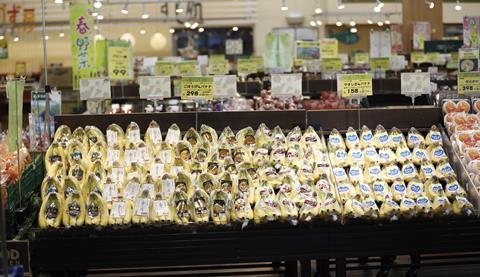Freshness, nutrition and ability to use all of the product given highest value

Japanese shoppers place the highest value on the freshness and nutritional balance of a product when considering their grocery purchases as well as reducing potential food waste, according to recent consumer trend data.
The survey, which was conducted by Japanese restaurant guide Gurunavi, found that Japanese consumers place less emphasis on seasonality and locally produced items.
While around 90 per cent of Japanese shoppers said they purchase domestically grown rice whenever possible, this dropped to 40 per cent for seafood, meat, and fruit. In fact, around 30 per cent of respondents said they have no origin preference when it comes to purchasing fruit at all.
Access to domestic products could be the reason for this as survey respondents said they either often or sometimes find it difficult to buy domestic products in almost all categories.
However, the survey also found monthly spending on rice, meat, and vegetables has increased by more than ¥400 (US$2.80) compared to the previous year, which may also be a factor.
Though only about half of the respondents cited “a reasonable price” as an important factor in their purchase decisions.



